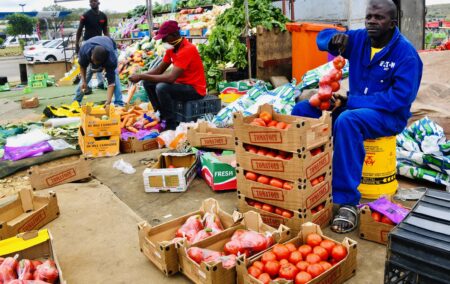The Government of National Unity (GNU) has been a welcome development in this country in terms of providing a certain “vibe check” about us, as the kids would say.
These feel-good vibes, along with more than 200 days without load shedding, are also leading to far more positive international coverage of South Africa and the medium-to-long-term prospects of the country.
With that said, the feel-good vibes must come with positive and investment-encouraging reforms, lest we fall into a Ramaphoria 2.0. We need to tackle the rotten political apparatus that allows corruption to flourish and unemployment to remain stubbornly high.
A need for political maturity
Both Frans Cronje and Mcebisi Jonas have highlighted the potential speedbumps of the 2026 local government elections and the 2027 ANC national elective conference, regarding the survival of the GNU. For obvious reasons the DA and ANC will be going hammer and tongs at each other trying to win important metros and strategic municipalities in 2026. The danger is that the process could end up tearing at the GNU, if overly incendiary language especially of the racial kind is used. In a depressingly ironic twist, if the ANC loses metros and key municipalities it could give impetus to anti-GNU forces within the party who want a grand left coalition with the EFF and MK.
Before any of the major contests of 2026 and 2027 happen there needs to be robust agreement within the GNU, especially from the ANC and the DA, that the current political milieu needs to change. As Mcebisi Jonas notes in his Daily Maverick article, Beyond the ballot ̶ the Government of national unity and global politics.
“The extent to which the GNU can sustain itself depends very much on the two main parties, the ANC and the DA – in terms of relations between the two and their own internal dynamics.
The May elections saw the ANC shed some of its populist elements. Potentially, this could allow for more political coherence and its renewal as a modern social democratic party. Much will depend on the ANC’s leadership capacity and whether it is prepared to forgo the party-state-business patronage systems upon which leadership campaigns at all levels have been built.”
This echoes Moeletsi Mbeki’s thoughts on how weakening a consumption-based and rapacious black elite and public sector middle class in favour of one premised on productivity and value creation (investment) is key to unlocking South Africa’s potential.
Put another way, South Africa is 80% black and cannot be a prosperous and safe country if the black elites’ incentives do not line up with building and maintaining institutions that encourage the development of human capital, public infrastructure, sound labour and industrial policy and competitive market businesses, rather than racialized state largesse that redistributes the private sector’s value creation towards a rapacious and rent-seeking elite, at the expense of everyone else, especially the poor black majority.
This is the realpolitik the ANC and the DA must somehow navigate, with all the challenges of unions and alliances and special interests, if the GNU is to make a lasting and substantive difference.
A steely pragmatism
It also seems to me that a ruthless focus on economic and job growth is good for both parties, however that may land in some quarters. It may provide the impetus to knock off the threat of MK and a grand left coalition.
As a paper titled Supply-Side Economics of a Good Type: Supporting and Expanding South Africa’s Informal Economy by the Harvard University Growth Lab notes:
“This paper argues that South Africa’s persistently high unemployment is in part explained by abnormally low levels of informal sector activity compared to other developing countries. Using cross-country data, it shows that South Africa is an outlier, with low informality and high unemployment relative to its income level. If South Africa had informality rates consistent with its income level, unemployment would be much lower at around 7% instead of over 25%.”
In other words, part of South Africa’s growth story towards prosperity is a wholehearted embrace of the informal sector by government and other key stakeholders through reduced red tape and regulations and the provision of critical infrastructure like storage facilities for goods. This could be targeted at especially poorer parts of South Africa like the former homelands. We also need updated agricultural policy that supports the integration of emerging commercial farmers in places like the former Transkei into the mainstream, instead of the failed small-scale farming projects that have often been supported by government.
The linkages between these farmers and a burgeoning informal sector could also encourage virtuous cycles of entrepreneurial opportunities and indeed employment opportunities. We also need a market-friendly policy environment and investor incentives in more rural provinces.
This, and not mere welfare, is the key step towards becoming more prosperous over time. Eventually informality will fall away as the economy and human capital develop.
[Image: https://www.flickr.com/photos/governmentza/49738533126]
The views of the writer are not necessarily the views of the Daily Friend or the IRR.
If you like what you have just read, support the Daily Friend

